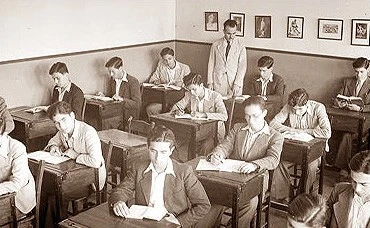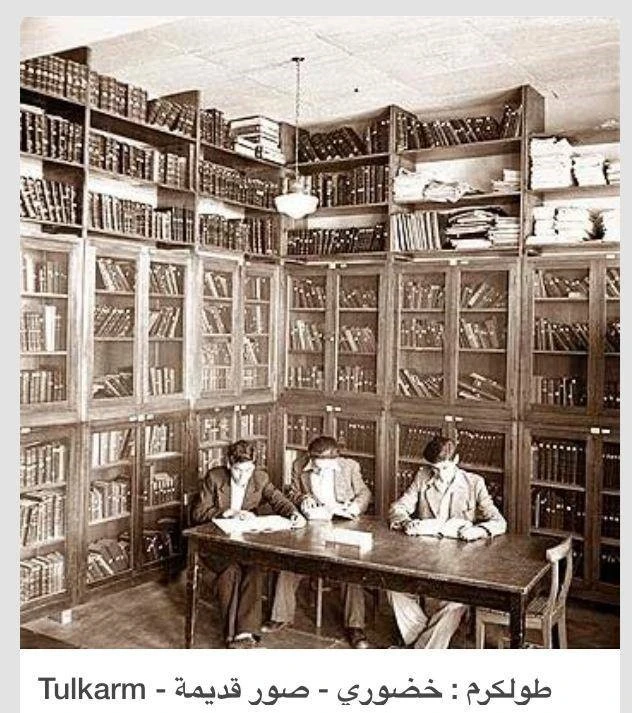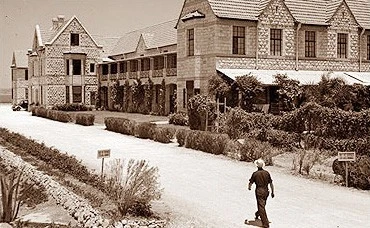The history of PTUK has been closely associated with the historical development of the Palestinian issue. It has also been directly affected by the successive rulers of the area.
Towards the end of the Ottoman’s rule and the advent of the British Mandate which was followed by the infamous Belfour Declaration, Palestinian communities aspired to preserve the national identity of the future generations and to help them challenge occupation though education.
Part of this effort was translated in donating land and money to build schools and colleges. In Tulkarm, people donated 600 dunums to build an agricultural school. The school was funded by the British entrepreneur and philanthropist Ellis Kadoorie whose efforts culminated in the establishment of Kadoorie agricultural Secondary school in 1930.
Teaching commenced in the school in 1931 with a total of 60 students who were selected to pursue their education after finishing their secondary school. The students enrolled in a 3-year program that led to a diploma in agriculture.
Between 1936 and 1939, the British military took control of the school and a major part of its agricultural land remained under the British Mandate until 1946. In 1848, Britain lifted its mandate on Palestine. However, a few months before this date, the UN declared its 181 resolution which resolved to dividing the land of Palestine between the Arabs and the Jews. Kadoorie and most of its remaining land came within the area that was to be run by the Jordanian Administration.
In 1961, the school was granted college status and was given the name “Hussein Agricultural College” which was administered by the Jordanian Ministry of Education. In 1965, the college opened its first teacher training department, to train teachers of mathematics and science.
Following the 1968 Israeli occupation of the remaining Palestinian area, the name of the college changed again to Tulkarem Agricultural Institute.
At the beginning of the year 1982, new specializations were added to prepare teachers in the disciplines of humanities, so that the study period became two years after passing the general secondary school exam, and its name was changed from the Agricultural Institute to an intermediate community college - Tulkarm College.
Following the Oslo accords in 1994, Kadoorie became “Palestine Technical College” and started granting a number of 2-year diploma degrees in Engineering and Science under the administration of the Palestinian Ministry of Higher Education. Later, bachelor degree programs in Electrical Engineering and Physical Education were introduced and five years later.
On Tuesday, August 28th 2007, Kadoorie was granted full university status as the first State University in the West Bank under the name Palestine Technical University– Kadoorie (PTUK).
The university’s successive presidents have worked relentlessly to build a learning inducing environment through applying international quality standards and developing the university's master plan which aims to inaugurate new colleges and offer new programs.
The first university's president, Prof. Dawood Al- Zatari played a major role in laying the foundations of the university's constitution and infrastructure.
In 2013, during the presidency of Prof. Marwan Awartani, the university was able to foster the principals of entrepreneurship and innovation by expanding its existing academic and research programs, attracting Palestinian and Arab scientific cadres, and consolidating the base of knowledge and scientific exchange with dozens of international universities. In addition to recovering nearly (140) dunums of university lands that were under the authority of many official institutions.
At the beginning of 2019, after Prof. Nour Abu Al-Rub assumed his presidency, the university witnessed an urban renaissance and qualitative achievements in the academic and structural fields. Moreover, during Prof. Abu Al-Rub's presidency, the first board of trustees was formed by a presidential decree in the year 2020.
Today, the university continues to inspire innovation by offering quality education that is necessity motivated and that contributes to the overall, sustainable national development of Palestine.






